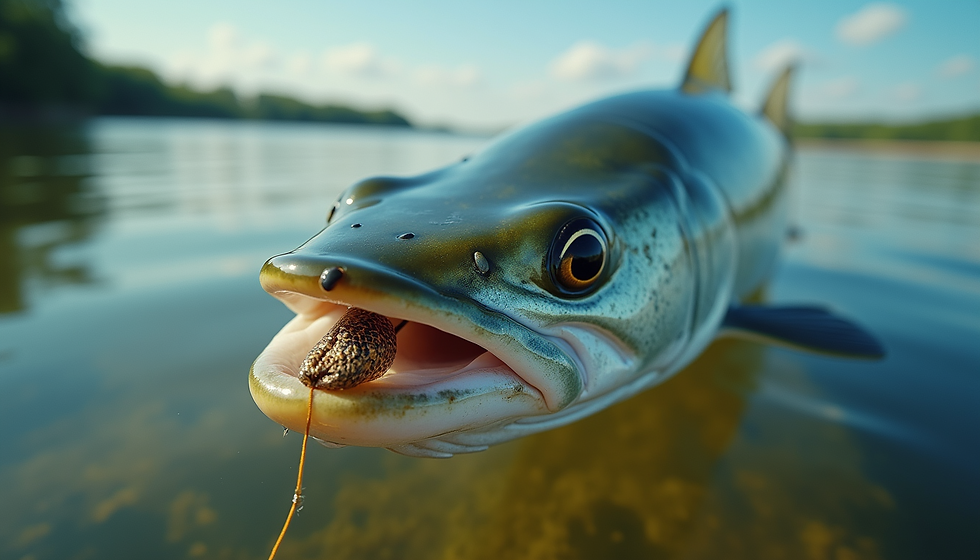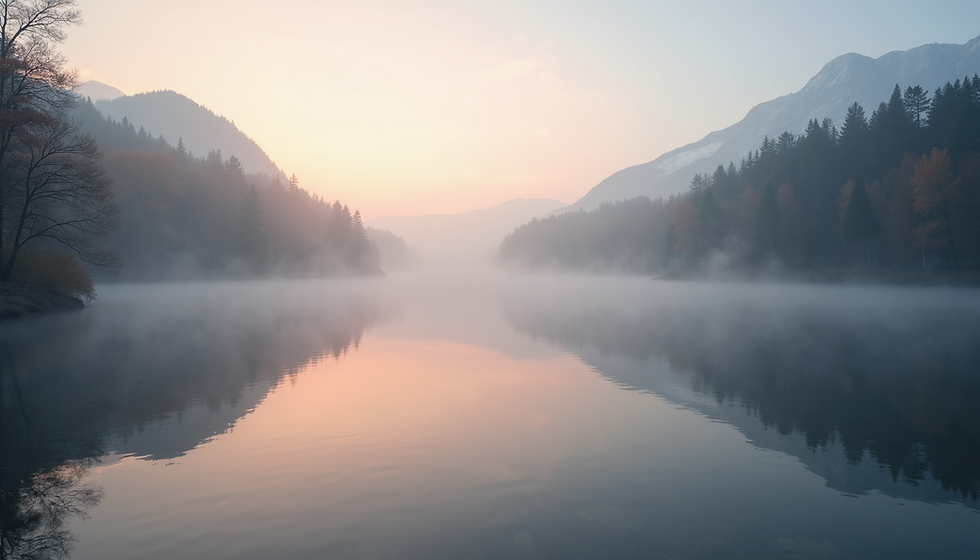Essential Factors to Evaluate Before Embarking on Your Next Musky Fishing Expedition
- nickjackson0894
- May 8, 2025
- 4 min read
Planning a musky fishing adventure can be one of the most exciting experiences for any angler. Musky are known not only for their impressive size—often exceeding 30 inches—but also for their elusive nature, which makes the hunt a thrilling challenge. Whether you are a seasoned pro or a beginner, there are several key factors to consider before you head out. This guide will help you maximize your chances of success and make your fishing experience more enjoyable.
Choosing the Right Location
Selecting the right location is one of the first steps toward a successful musky fishing trip. Musky inhabit lakes, rivers, and reservoirs, primarily in the northern parts of North America.
Focus on areas noted for healthy musky populations. For instance, locations like Lake Vermilion in Minnesota or the St. Lawrence River in New York are popular hotspots. These areas often exhibit seasonal patterns that can affect musky behavior. For example, fishing is more productive in the fall as musky prepare for winter and become more aggressive.
Research local fishing reports and connect with nearby anglers for current conditions. Websites and forums can provide valuable insights about water levels, fishing hotspots, and any recent catches. Make sure you also review fishing maps for underwater structures and habitats that attract musky.
Timing Your Trip
The timing of your fishing expedition can significantly influence your catch rate. Musky are particularly active during early morning and late evening, with about 65% of successful catches occurring during these hours.
Seasonal timing is critical as well. In summer, when water temperatures rise, musky tend to move into shallower areas. Conversely, during spring and fall, especially when temperatures range between 60 to 75 degrees Fahrenheit, they might be found in deeper waters.
Always check local regulations about allowed fishing seasons. Aligning your trip with ideal musky activity can greatly enhance your chances of a successful outing.
Fishing Equipment and Gear
Equipping yourself with the right gear is vital for musky fishing. Their size and fighting strength demand robust equipment. A good fishing rod should be between 7 and 10 feet long, with a medium to heavy action designed for big fish.
Investing in a high-quality reel that includes a strong drag system can also make all the difference. Look for lines rated around 80-100 lbs, whether you choose monofilament or braided lines.
When it comes to lures, larger baits are generally more effective. For example, big crankbaits or topwaters measuring 8 to 12 inches can entice strikes. Many anglers have also had success with live bait like suckers or jigs in the 4-8 inch range, especially during colder months. Don't forget to bring a landing net and fish grips to manage your catch safely.
Learning Techniques and Strategies
Mastering specific techniques and strategies can enhance your success rate while fishing for musky. One effective method is the figure-eight retrieve, which can provoke strikes from musky hovering near the surface. Cover more water by casting from different angles; this will increase your chances of locating fish.
Pay attention to their environment as well. Structures such as submerged trees, rocks, and weeds serve as prime spots for musky hunting, due to the cover they provide. Adjust your retrieval speed based on conditions; sometimes a slow pull works better than a fast one, depending on the activity level of the fish.
Weather Considerations
Weather plays a crucial role in fish behavior. Generally, stable weather is preferable for fishing, as erratic weather can disrupt feeding patterns. Overcast days can lead to increased musky activity since they feel safer venturing into shallower waters.
For instance, research has shown that fishing during light rain can boost feeding activity by up to 40%. Alternatively, intense sunshine may drive musky into deeper areas or shaded spots.
Always monitor weather forecasts closely and be prepared to adapt based on changing conditions.
Permits and Regulations
Before heading out, make sure you have the correct permits and are familiar with local fishing regulations. Laws can vary greatly by region, covering aspects like fishing licenses, size limits, and catch-and-release practices.
Being informed helps not only in maintaining compliance with local rules but also in supporting conservation efforts to preserve healthy musky populations. For example, in certain regions, there are size limits to ensure that only mature fish are caught, helping to sustain the population. Verify requirements through local authorities or fishing websites and obtain permits ahead of time.
Safety and Conservation
Prioritizing safety and conservation is crucial during your musky fishing trip. Always use a life jacket when fishing from a boat, and let someone know your fishing plans in advance.
Practice sustainable fishing by adhering to catch-and-release practices. Musky are slow-growers, and overfishing can significantly threaten their populations. Handle any fish caught with care to ensure they survive after being released. Use tools that minimize stress, such as fish grips and nets, and educate yourself on proper handling techniques.
By following these guidelines, you can enjoy your musky fishing expedition while contributing to the health of aquatic ecosystems.
Final Thoughts
Planning a successful musky fishing trip involves careful consideration of several factors, from the right location and timing to appropriate gear and techniques. By evaluating these essential aspects, you can boost your chances of not only catching a musky but also enjoying a fantastic adventure on the water.
Happy fishing! May your next musky expedition be filled with excitement and success.





Comments